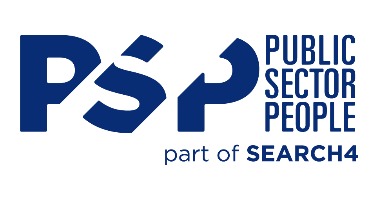Automation And The Future Of Administrative And Business Support Roles Within The Public Sector

By Emily Harris
Advancements in automation and artificial intelligence (AI) are drastically reshaping the job market by enabling machine and SMART technology to perform key functions within the workplace- particularly within administrative and business support roles. Such advancements include enabling organisations to offer digital self-service to clients, gathering and analysing key business data and preparing company documents and contracts. We've already seen these transitions occur across the public sector over the last two years when many services had to be shifted online due to the pandemic and resulting lockdowns.
While automation can make particular tasks more efficient, what impact do these advancements have on the employees originally responsible for performing these tasks? In this blog, Public Sector People explore the emerging trends in AI and the opportunity they create for government agencies and employees alike, especially those within the professional and administrative space.
What Is Artificial Intelligence (ai)?
When hearing the term artificial intelligence, you’d be forgiven for envisioning hi-tech robots like something out of the terminator, but what exactly does it mean and how does it apply to the job market?
The term was originally coined in the 1950s when the US Department of Defence began training computers to mimic basic human reasoning and refers to the ability of a digital computer or computer-controlled robot to perform tasks commonly associated with intelligent beings. Over the last decade, the concept has gained popularity as advancements in technology have allowed computers to automate manual processes and develop formal reasoning which can complement and augment human abilities.
Most AI examples that you hear about today – from self-driving cars to virtual assistants and chatbots like Apple’s Siri – rely heavily on deep learning and natural language processing. These computers can also be ‘trained’ or ‘wired’ to perform certain tasks by processing and filtering through large amounts of data, to identify particular patterns. The potential of AI technology is significant and far-reaching. In healthcare, AI applications are providing personalised medicine and x-ray readings. Patients can also access ‘virtual’ personal health care assistants who remind them to take their pills, exercise or eat healthier. In regards to cyber security (across the private and public sector) AI is being used to help identify which transactions are likely to be fraudulent and warn against potential scams, as well as automate manually intense data management tasks. And finally, services across the public sector (the myGov app is a great example of this) have utilised AI capabilities to offer personalised recommendations and discuss relevant options for customers enquiring about government services (booking vaccines, applying for funding etc).
However, while the developments in AI technology provide great advantages it also changes the current ways of working; if a computer can be trained to process data management tasks or interact and serve customers, what happens to the people that originally performed these functions? Do their roles become obsolete?
The Impact Of Ai On Administration And Professional Services
One of the first groups of people to be impacted by and utilise AI were those in administration and coordination roles. Often referred to as the backbone of a business, a team’s business support, coordination and administration personnel are responsible for keeping business operations on track and are often in charge of managing and processing key company data, depending on what department they work in; marketing, finance or HR for example.
However, their involvement in sorting and organising business data has made them a prime candidate for AI technology. Tasks like data entry, the drawing up of key documents and contracts and even candidate screening in recruitment processes, can now be performed through machine learning and automated tools. Furthermore, the creation of online help services and chatbots - software applications that can simulate and process human conversation – means computers can now deal with basic staff and customer enquiries. All of these previously manual tasks were often time-consuming, repetitive and occasionally prone to human error. But while AI technology ensures these functions are done more efficiently and can delve deeper into data patterns, does its potential eradicate the need for human staff; particularly in front-of-house or administrative roles?
A recent study conducted by PwC analysed over 200,000 jobs in 29 different countries to explore the economic benefits and potential challenges posed by automation and the uptake of AI. In summary, their research found that by the mid-2030s, 30% of jobs would be at risk of potential automation (replaced by machines). They then specified that the industry’s most at risk would initially be those that have an element of ‘process’ to them; tasks that can be written down and sequenced and don’t rely heavily on social interaction. AI’s current capability allows computers to overtake humans in simple computational and information processing tasks. However, technological advances mean that in the future machines could be used for more complex tasks - for example autonomous, contactless driverless vehicles which could then see drastic changes in the transport industry.
What does need to be considered, however, is that while some current tasks are being displaced by machines, technology advancements will also create new opportunities for workers. In a 2019 Harvey Nash/KPMG CIO survey that asked 3,600 IT leaders around the world their thoughts on AI’s impact on the future of work, the typical response was that up to 10% of their workforce would be replaced by technology over the next 5 years. HOWEVER, 69% of respondents also said that new jobs will appear to compensate for these losses.
With every wave of technology- from the automatic weaving looms of the industrial revolution to the computers of today, jobs are re-imagined or created to adapt to our new way of working. Twenty or thirty years ago, working as a social media marketer didn’t exist as a profession whereas today it’s one of the most commonly searched job titles on Seek. Yesterday’s secretaries are today’s database administrators. Yesterday’s milkmen are today’s Uber Drivers.
A Global consulting firm, McKinsey & Company also predicts that in addition to new technology creating new roles, roles will also be recreated from the general boost to productivity, incomes and wealth that AI technology will bring. As these additional incomes are spent, this will generate additional demand for labour and new jobs, as such technologies have done throughout history.
The Opportunities Ai Can Present To Office Workers
McKinsey & Company also predict that within 60% of jobs, 30% of the tasks conducted by people could be automated. This indicates that the way we work will shift, no matter the industry or the occupation. But shifting or transitioning doesn’t have to be a negative thing. Partner at MGI, Susan Lund tells the story of the introduction of ATM machines to elaborate on this point. Back in the 1980s, bank tellers spent a large portion of their time collecting cash from customers to deposit into accounts or handing out cash, however the introduction of ATM machines automated these tasks. Rather than causing a decline in the number of bank tellers, the introduction of ATMs caused an increase in tellers. This was primarily because ATMs made bank branches a lot less expensive to operate. This caused a surge in bank branches across the country which required more tellers, even though there were few bank tellers in each branch.
What this example highlights, is that while automation will replace particular tasks, the opportunities it presents to both employees and organisations are just as significant. The public sector in particular has embraced technology in recent years, embarking on their own digital transformation with many departments looking into AI technology and how it can be used to benefit both employees and improve the overall services provided to the general public.
However, when integrating AI technology into business processes it's important to also look at the activities that machines are less capable of; particularly those that require more cognitive functions, problem-solving and social interaction- like managing taskforces/teams or dealing with customers.
This will also mean that the skills and capabilities required for these roles will shift from what was traditionally needed; particularly in terms of soft skills (emotional intelligence, creativity, communication, and problem solving). What this means for individuals is that a greater focus will have to be placed on their own career development and learning; especially if they are in roles that are already using or most likely to use automation for key tasks. Now is the time to prepare for a rapidly evolving future; for staff to start doing their own research on the new skills that will be required/in demand within their industry over the next few years. It’s recommended to ask work colleagues or mentors for their advice and enquire about the potential career opportunities/development plans they have in place for their staff. There will always be a demand for human labour, but professionals everywhere will need to rethink the traditional notions of where they work, how they work and what talents and capabilities they bring to that work.
On the flip side, a greater responsibility will now fall on government organisations to focus on providing job retraining (especially as they leave legacy systems behind) and enable individuals to learn marketable new skills throughout their careers. In particular, mid-career training will become more important as the skill mix needed for successful career changes. Being able to offer employees on-the-job training- especially in how to work and utilise new technology- and providing regular opportunities for workers to upgrade their skills will be essential for an organisation’s overall productivity.
Ultimately, while automation will significantly impact the majority of occupations, it will enhance many roles and make some of the most tedious and time-consuming tasks more efficient and effective. Rather, the public sector as a whole will need to learn how to work alongside these new technologies and learn how they can be utilised to help local councils and government agencies serve their local communities as best they can.








Job Sectors
All content copyrighted | Privacy Policy | Cookie Policy | T&Cs | Powered with 💙 by Shazamme




